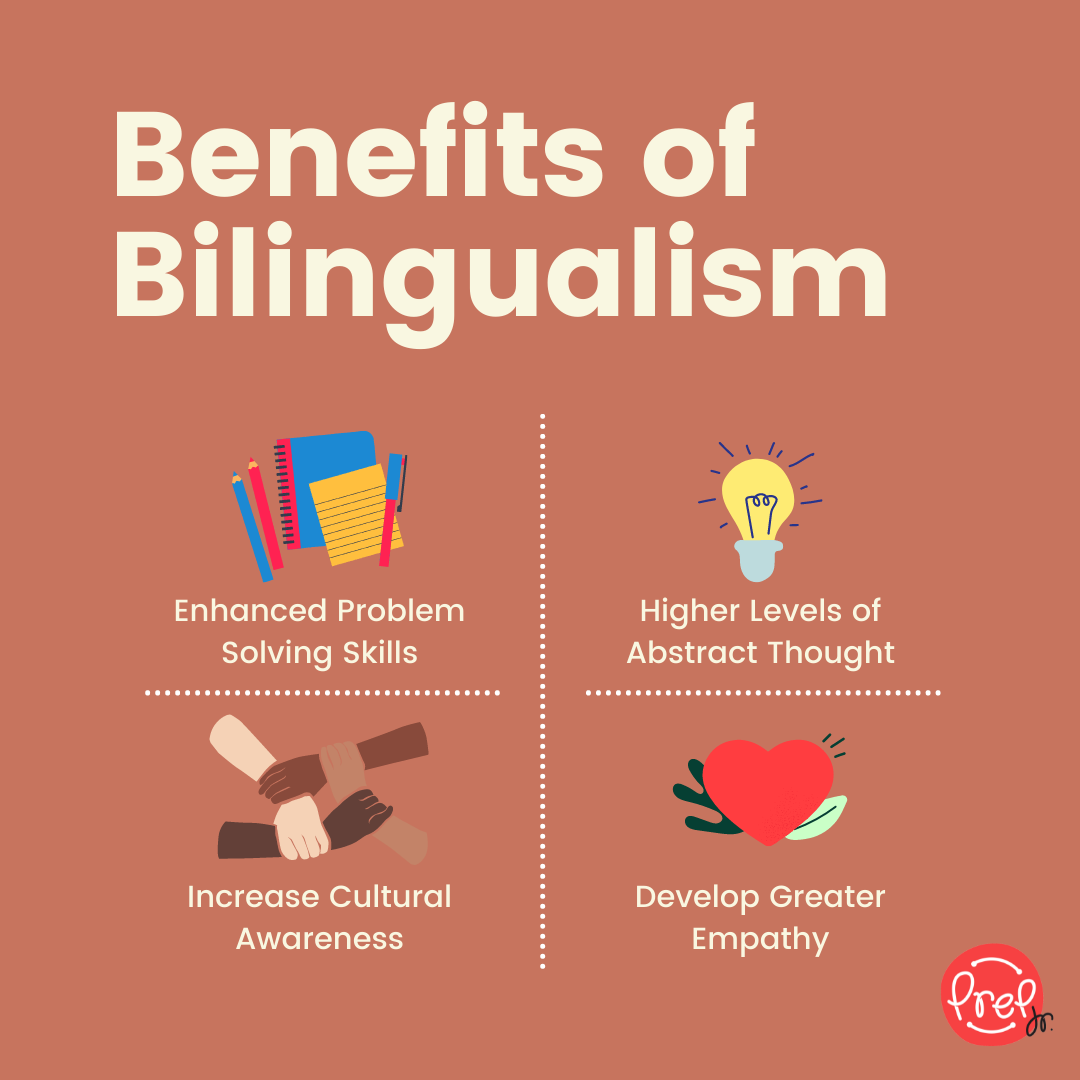Blog
Benefits of Bilingualism
By Tammy Kong on 17/11/2021

“Learning another language is not only learning different words for the same things but learning another way to think about things” — Flora Lewis
Individuals who are bilingual and biliterate switch between two different language systems. Their brains are very active and flexible. Research also shows that, compared to their non-bilingual peers, bilingual people have an easier time in these areas:
- Understanding concepts and solving problems
- Developing critical thinking skills
- Using logic
- Creativity
- Focusing, remembering and making decisions
- Greater attention span
- Better multi-tasking abilities
- Learning other languages
Bilingual and multilingual children benefit academically from knowing more than one language in many ways. As they are able to switch between languages, they develop more flexible approaches to thinking through problems. The ability to read and think in two (or more) different languages promotes higher levels of abstract thought, which is important in learning.
In addition, the children develop greater empathy towards others as they are exposed to another language which brings about another culture. This implies greater tolerance towards diversity. By accessing another language, this opens up new traditions, ideas and even ways of thinking. Furthermore, bilingualism/multilingualism allows them to appreciate literature in another language as some things simply lose their meaning when translated. Hence, learning another language increases one’s cultural awareness and appreciation for another language and this enhances their ability to connect and communicate with more people.
Language helps us understand the world a little better. Learning a language is not about learning the rules and vocabulary but gaining insights into the society and culture behind that language as well. The benefits of being bilingual go beyond the ability to communicate in another language. Bilingualism gives kids a broader perspective of the world.


